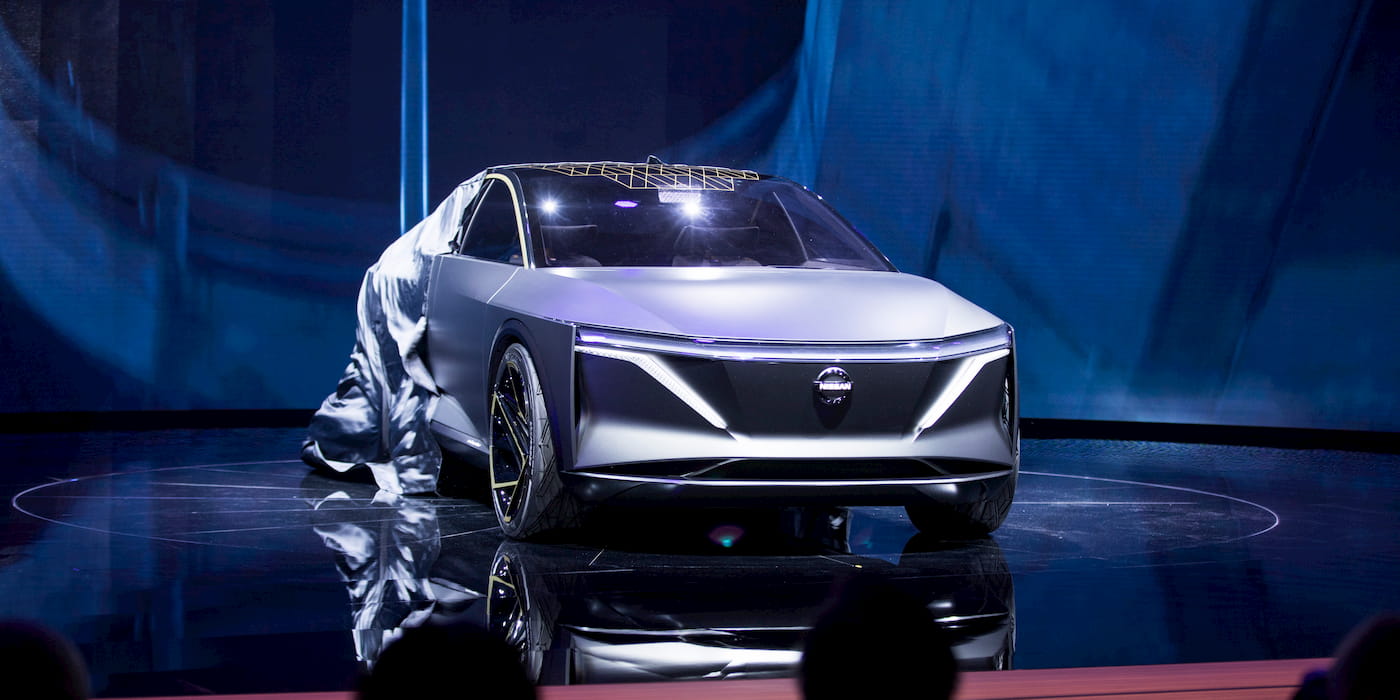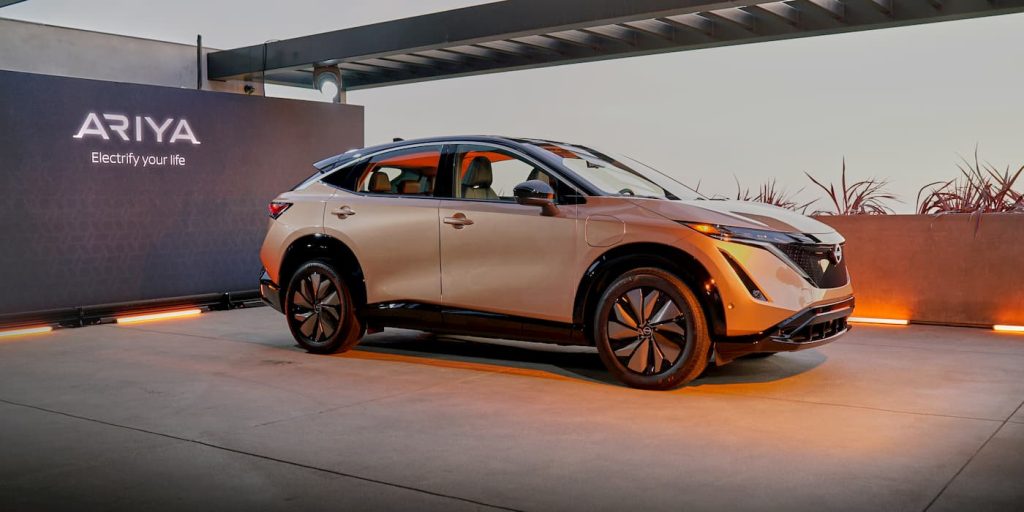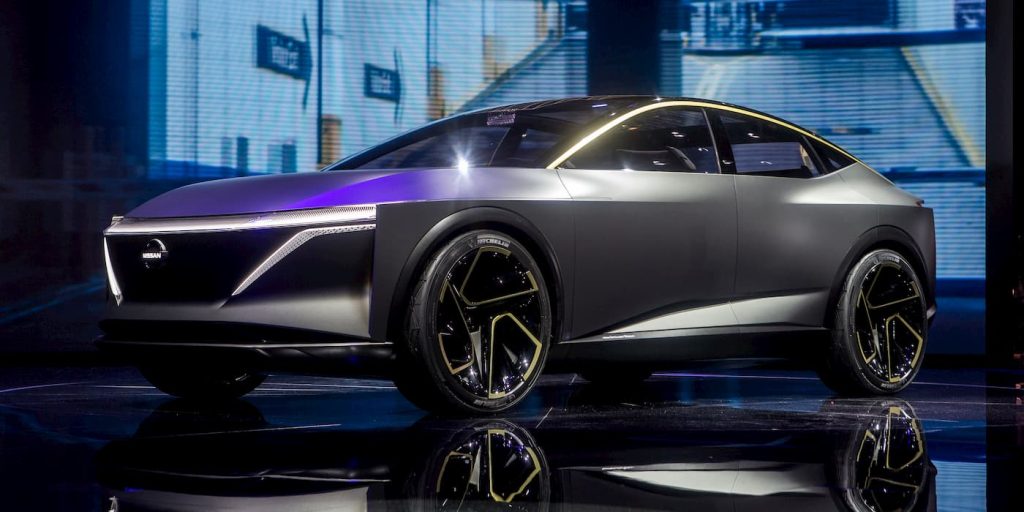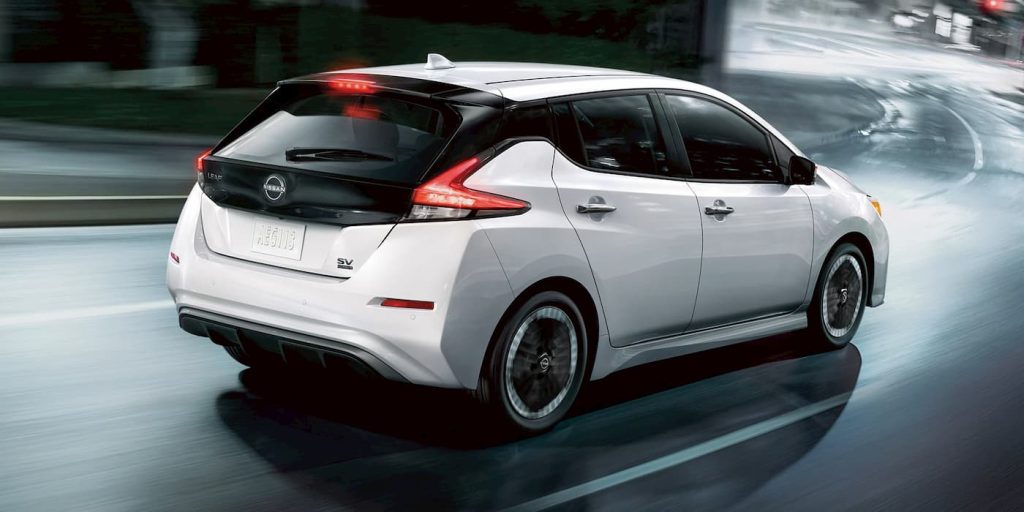
Nissan showed off its next-generation electric vehicles to dealers this week, previewing its future lineup. The automaker presented three new EVs, including a successor to the LEAF hatchback, a performance sedan that could take the Maxima’s place, and a third electric model.
Nissan shows three new EVs to dealers
Top Nissan executives were shown about a dozen new and updated products, according to Automotive News, as Nissan moves to electrify its lineup.
The automaker is expected to kick off its EV campaign around 2025, with dealers being informed that it plans to launch 27 electrified models by 2030, including 19 all-electric vehicles.
Nissan previewed three new EV models expected to roll out in the next few years. According to the report, the LEAF successor will be a crossover-style coupe. One dealer described it as a “mini-Ariya.”
Dealers were told it would offer 25% more range than the current version, indicating around 265 miles of range (compared to the 60 kWh battery on the Nissan LEAF SV Plus).
The second EV shown was a performance sedan that, the report notes, could replace the Nissan Maxima. Dealers were also shown an electric crossover SUV built on the dedicated CMF-EV platform used for the Ariya EV.

Last month, Nissan’s supplier production schedule revealed plans for two new Nissan and Infiniti electric sedans starting in 2025, followed by a pair of electric crossovers at its Canton assembly plant the following year.
Sticking to a hybrid strategy
Despite previewing three new EVs, dealers were also shown Nissan’s upcoming ICE lineup. CEO Makoto Uchida committed to investing in both ICE and EV, sticking to a hybrid approach like its Japanese rival Toyota.

Nissan said it will bring its e-Power series-hybrid tech to the US in the second half of 2026. The technology, introduced in Japan in 2016, uses an electric motor to power the vehicle’s wheels but still uses a gas engine to charge the battery.

Also, like Toyota, Nissan touted details about the solid-state batteries under development. The automaker says the batteries are smaller and can provide 100 miles of range in 15 minutes via fast charge. Nissan plans to begin pilot production at its Yokohama plant next year.
Electrek’s Take
Although Nissan was once seen as a pioneer in electric vehicle tech with the release of the LEAF, the automaker has fallen behind the past several years.
The LEAF, released in December 2010, was the best-selling EV for several years. However, most automakers have caught up, releasing all-electric models of their own.
Top comment by Make Tesla Great Again
Be interesting to learn if the LEAF successor will have a battery with active thermal management or not. If not they are toast. They maybe toast anyway.
Nissan has failed to update the LEAF over the years, leaving the market wide open for the taking. It took over a decade to release its second pure EV, the Nissan Ariya, which is already outselling the LEAF in the US.
Despite plans to accelerate EV production, Nissan is sticking to a hybrid approach, which only delays the inevitable. If Nissan revealed these EVs three or five years ago, it could be lightyears ahead of the pack. But instead, Nissan insists on a diversified approach.
The LEAF is in need of a replacement, with sales slipping consistently, but it should have been done several years ago, not in another two years.
Rather than focusing on increasing EV production and meeting demand, Nissan will have its hand in several segments, making it even harder to transition in the long run.
FTC: We use income earning auto affiliate links. More.




Comments